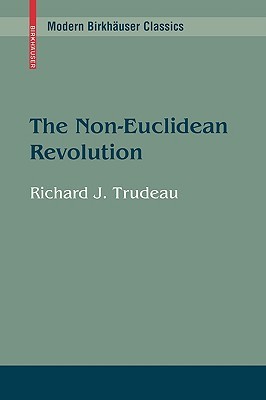
- We will send in 10–14 business days.
- Author: Richard J Trudeau
- Publisher: Birkhäuser
- ISBN-10: 0817647821
- ISBN-13: 9780817647827
- Format: 23.1 x 15.5 x 2 cm, minkšti viršeliai
- Language: English
- SAVE -10% with code: EXTRA
Reviews
Description
Richard Trudeau confronts the fundamental question of truth and its representation through mathematical models in The Non-Euclidean Revolution. First, the author analyzes geometry in its historical and philosophical setting; second, he examines a revolution every bit as significant as the Copernican revolution in astronomy and the Darwinian revolution in biology; third, on the most speculative level, he questions the possibility of absolute knowledge of the world.
EXTRA 10 % discount with code: EXTRA
The promotion ends in 23d.07:50:02
The discount code is valid when purchasing from 10 €. Discounts do not stack.
- Author: Richard J Trudeau
- Publisher: Birkhäuser
- ISBN-10: 0817647821
- ISBN-13: 9780817647827
- Format: 23.1 x 15.5 x 2 cm, minkšti viršeliai
- Language: English English
Richard Trudeau confronts the fundamental question of truth and its representation through mathematical models in The Non-Euclidean Revolution. First, the author analyzes geometry in its historical and philosophical setting; second, he examines a revolution every bit as significant as the Copernican revolution in astronomy and the Darwinian revolution in biology; third, on the most speculative level, he questions the possibility of absolute knowledge of the world.


Reviews